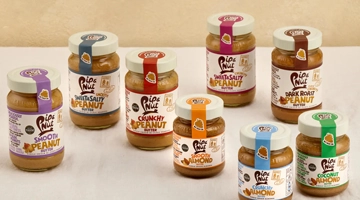 https://www.3keel.com/wp-content/uploads/2025/08/fisheries-webinar-featured-image.png
200
360
Carole Scott
https://www.3keel.com/wp-content/uploads/2023/04/3keel_logo-1.png
Carole Scott2025-09-12 09:36:242025-09-19 14:52:55Webinar: fisheries in sustainable food systems
https://www.3keel.com/wp-content/uploads/2025/08/fisheries-webinar-featured-image.png
200
360
Carole Scott
https://www.3keel.com/wp-content/uploads/2023/04/3keel_logo-1.png
Carole Scott2025-09-12 09:36:242025-09-19 14:52:55Webinar: fisheries in sustainable food systemsCASE STUDY ODDBOX
Understanding Oddbox’s impact on food waste
3Keel worked with Oddbox, a fruit and veg delivery box, to understand its impact on food waste and to develop recommendations to achieve greater impact.
ddbox is an impact-driven company dedicated to tackling food waste. When it was founded in 2016, it adopted a business model that was based on grower-led supply and wider specifications for sourcing fruit and vegetables – so called ‘wonky’ veg. Oddbox takes surplus and unusually shaped produce that wouldn’t typically be accepted by supermarkets and sells it to consumers directly. The founders chose this model with the belief that it would help reduce food waste.
Oddbox hired 3Keel to help assess whether the model was having its desired impact. Between March and September 2022, we worked with the Oddbox team to understand their on-the-ground impact on food waste.
We began by conducting a literature review of existing research on food waste reduction. This research provided the basis for a theoretical understanding of Oddbox’s impact.
In the next stage of the project, we engaged directly with Oddbox’s suppliers and growers to understand how the model was having an impact on their own operations. Through a combination of surveys and in-depth interviews, we collected data to map how Oddbox’s activities translate to impact on the ground — both on food waste and broader impacts.
Using this research, we provided Oddbox with a final set of recommendations on how they could achieve greater impact on reducing food waste.
This project highlighted a range of key lessons, with wider applicability to the general food sector. One of these was that there is little consistency in food waste data collection. There is a wide range of information collected and suppliers don’t often report on the quantity and location of food waste within their supply chains. This makes it difficult to identify food waste hotspots and take action to address them. The food industry needs to move towards more accurate data collection and reporting. Some progress is already being made towards this under partnerships like WRAP’s Courtauld Commitment 2030, but we need to see more industry-level collaboration in the future.
Linked to the issue of a lack of food waste reporting, there is a lot of variability in food waste depending on the type of crop, which impacts on shelf life, harvesting, storing and transportation methods. Better waste measurement will allow for the identification of crop-specific issues, and allow targeted food waste reduction.
We also found that suppliers felt that Oddbox played an important role not only in reducing food waste, but also in educating customers. Suppliers felt strongly that Oddbox plays a vital role in informing the customer that outgraded produce is still perfectly edible. We can see a wider and growing acceptance of these ideas as supermarkets begin to stock their own ‘wonky’ ranges.





